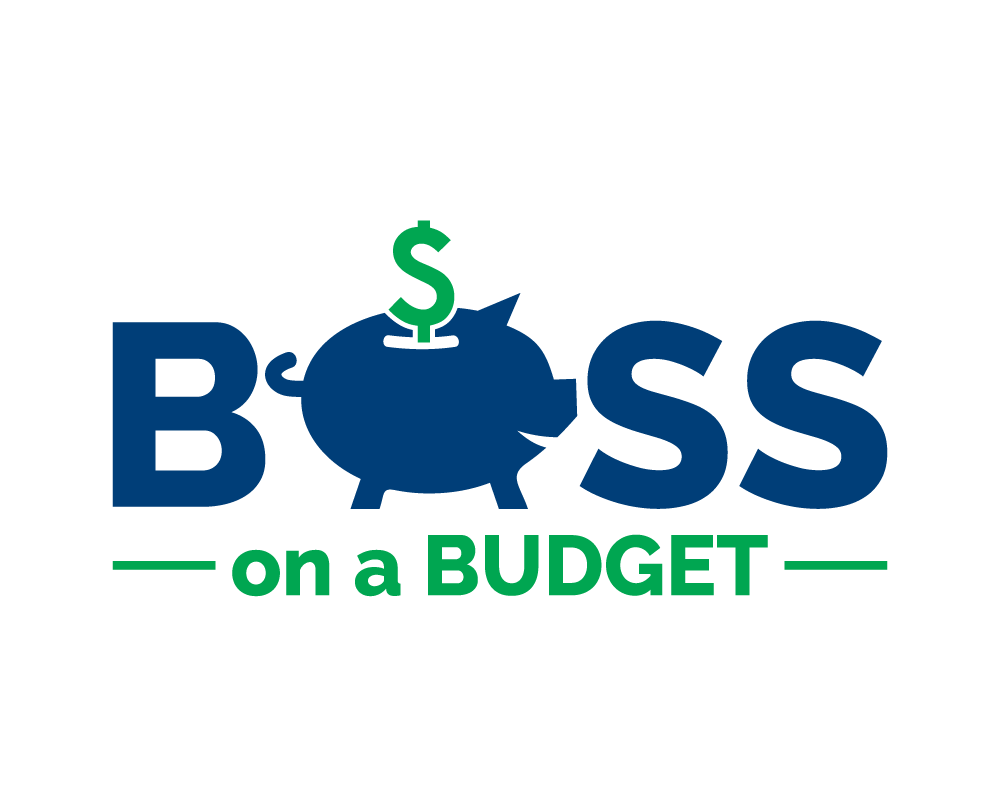How to Get Paid as a Nonprofit Founder
It’s rare that a person starts a nonprofit just to make money. Everyone who reaches out to me for help wants to start a new nonprofit because they feel led, either by a God-given vision, or a strong desire to see change in their communities. Rarely the first thing discussed is how to get paid. But eventually after investing years of their time and money, many nonprofit founders wonder, when will it be my time to get paid?
Rightfully so, I hear questions like:
How do you make money as the owner of a nonprofit/How do you get paid owning a nonprofit?
Can the founder of a nonprofit receive a salary?
Before I go any further, I want you to understand that it’s ok to be compensated for your work. Having a nonprofit doesn’t mean you can’t make a profit. This is important.
Don’t let anyone tell you that it’s selfish or greedy to collect a salary while working for your nonprofit. I never understood why people have such unrealistic expectations of nonprofits. People want programs that are responsive, have stellar services, but don’t believe the staff doing the work should be compensated for it? How does that work?
Don’t believe the hype! Don’t be shy about seeking money to pay staff salaries, even when you’re the founder. The work can’t be done if you don’t have people to do it.
“Don’t let anyone tell you that it’s selfish or greedy to collect a salary in your nonprofit.”
In this blog post, we’ll talk about what to consider in order to set the right path for you to get paid. First, let’s set the record straight on how nonprofits are required to operate and how it impacts the ability for founders to be paid.
Ownership
Remember that no one owns a nonprofit. That means that if the nonprofit makes any money, you nor anyone else in the organization is entitled to that money. Even if it’s based on your idea. Even if it was your time and effort that helped earn that money. Nonprofits are public organizations, governed by a board of directors.
The very nature of a nonprofit means that members, directors, or officers cannot unduly benefit. In other words, nonprofits are set up to avoid any one person having absolute control and power. Later in this blog I’ll talk through ways you can be compensated and get paid as a nonprofit founder.
The Board Does Not Get Paid
Board members do not typically get compensated for their time beyond reimbursement of certain expenses incurred as a result of their board service (expenses might be mileage or food). Board members do not receive a salary. That means that if you start out on the board of your nonprofit, if you want to be paid, you will need to transition to a staff position. (In this blog post, I will assume that most founders want to transition to be the organization’s Executive Director). You may be wondering if board members can be compensated. I break it down in this video HERE.
Once you transition to a staff member, the board will provide oversight of your position and review your performance. It’s perfectly ok if you start out on the board and then you transition to staff-in fact most new founders start out that way. Just be clear as you’re recruiting your first board that your long-term goal is to become a staff member, so there are no surprises when it’s time for your board to vote on staff positions.
Setting Compensation
When setting pay for any staff, the board must assign “reasonable compensation”. Compensation could be salary, but it could also be benefits, payment of insurance premiums, and other non cash compensation. Reasonable means the compensation should be comparable to the duties and expectations of the position.
When the board is determining salaries, you can review compensation packages of other organizations that provide similar services as your organizations or those in your geographic area. Remember that compensation isn’t just about salary! If your organization cannot pay a high dollar amount, you may be able to provide a generous compensation package through health insurance, paid leave, or other tax benefits. Use Glassdoor to help you estimate what you should be paid, based on real data and similar organizations HERE.
The IRS pays attention if there’s an imbalance in the type of compensation compared to duties provided, because it’s the first clue that there may be an issue or mismanagement of funds. In your 990 tax form, you will have to report the staff with the highest level of compensation. This is public information, so be mindful of how you proceed.
Be Mindful of the Phase You’re in
If I had to put an hourly amount on the value of my time and talents, I would be in the millions per hour! No seriously, I highly value what I bring to the table, just like you probably do for yourself. That means, even in the beginning, you will feel the urge to automatically assign yourself a level of compensation that you believe you deserve right away. But I want you to remember that your nonprofit has different phases of development. And your first phase - startup- requires sacrifice, so that you have enough cash flow to support your true salary.
Even if you’re ready for a salary, don’t expect the full amount in the first couple of years, because you want your organization to be self-sustaining FIRST. Otherwise, you run the risk of having inconsistent payroll because you weren’t ready.
To start your nonprofit the right way, use my nonprofit startup workbook to guide you through the process so you can launch successfully.
Now. It’s one thing to want to be paid, it’s another to put the plans in place to get it done. Next, I’m going to lay out some steps you can take to get a salary as a nonprofit founder.
Add it to Your Budget
Your first step is to write your salary into your organization’s budget. It sounds simple but most new nonprofits don’t do it. First, because many small nonprofits don’t have operating budgets. Second, because they approach their budgets from a place of scarcity - they don't want to assign the true cost to their activities because they’re scared to ask for too much in the beginning, and deep down they don’t believe they could possibly raise the money to cover it.
If I’m describing you, I’d like to ask you one question - how can you challenge yourself to raise the money for your salary if you don’t declare it?
I encourage you to do this - not just with your budgets but with any of your goals- write it down. Writing it down creates an obligation. It creates a sense of accountability. It gives you direction and increases the likelihood you’ll reach your goal. After you’ve decided what the salary should be, write it as a line item in your budget. Then breathe. Then get to work to raise the money! Which leads to the next point.….
Pursue Fundraising Strategies that Support Staffing and Overhead Costs
One of the go-to strategies for new nonprofits is grants. That’s not always the best strategy in the startup phase (find out why HERE) because funders like to see proof that you have administered a program and they want to see financial statements of at least two years. In addition, grants may not always cover staffing or overhead costs.
One mistake I see nonprofit founders make is to seek a grant to cover their whole salary. This is problematic for a few reasons - first because these grants are rare. That means competition is probably high and it’s less likely that you'll win.
The second reason is that this isn’t a sustainable strategy. What happens the second year? A lot of funders don’t like funding organizations year after year. So after one year you’ll be in the same boat, looking for a grant to fund your salary again. Instead, create fundraising specifically for staffing and overhead costs - which should include pursuing individual donors or earned income. Go HERE for an explanation of these fundraising strategies. Seek out unrestricted funding sources with as little strings as possible so you can have the flexibility to build up your infrastructure, which includes salary.
Write your Salary into Your Program Budgets
One mistake people make is assuming that the Executive Director’s staffing costs can only be included in overhead or administrative costs (go HERE if you need help understanding what those are). But there’s nothing stopping Executive Directors from working as program staff.
If you’re pursuing grants and writing budgets for program staff, don't forget that an Executive Director can also participate in the work IF they are providing services directly related to the program. You can write in the Executive Director’s time two ways: first in your administrative costs (which are often capped at a percentage) and/or as a staff person providing services for specific programs.
Use Your Talents to Raise Money
Consider many different ways you can leverage your strengths to cover your salary in the beginning. Take inventory of your assets, which could include physical assets, skills, knowledge, etc. Think about the assets that would be of interest to others and market to other individuals and companies at a cost. Just be sure that these efforts are mission-centric so as to avoid any issues with Unrelated Business Tax (UBIT).
Here’s some concrete examples of ways you can use your assets to raise money:
Leverage your technical or professional skills - Can you provide consulting or training to teach your skills to other nonprofits, companies, government agencies, churches, etc?
Product sales - Could you develop a product like a book/e-book, resource guide, food item, merchandise, etc. and sell to the public?
Marketing - Is there a way you can market any of your organization’s assets (for example, can you sell ad space on your website, or manage a directory and sell membership slots?)
Space rentals - Do you have additional space you can sublet to other organizations or individuals?
As you work to get paid as a founder, remember two things - 1) set a goal and then work at getting there. It’s not going to happen overnight, but the sooner you have an intentional strategy around raising your salary, the sooner you’ll have it.
2) to ensure that you can raise AND maintain your salary, be sure to look at multiple ways to bring money in to support your work.
Looking for other ways to make money for your new nonprofit? Read more HERE.



